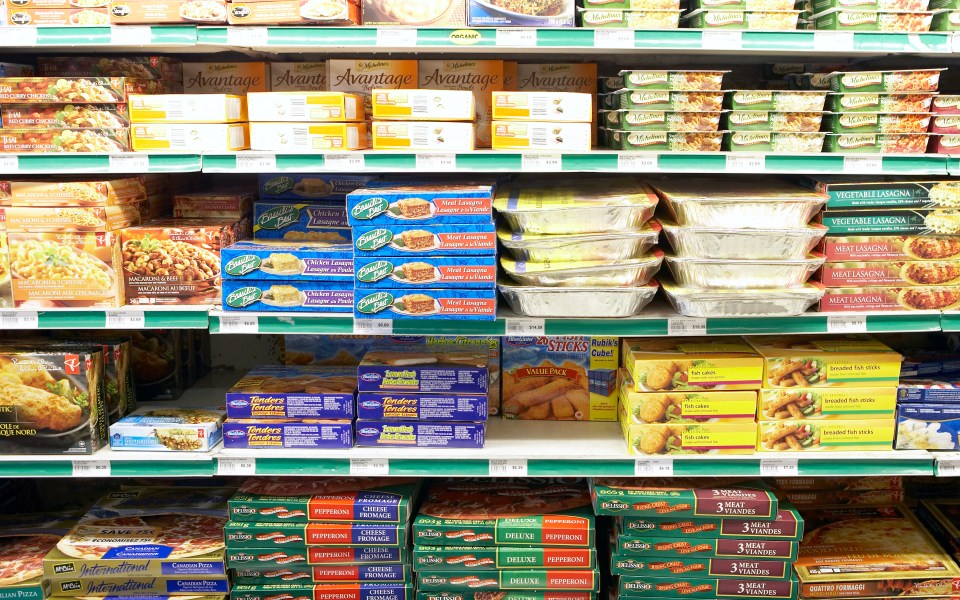Wait, not wanting to expend a lot of energy and concentration to prepare food and opting for easy to make ultra-processed food is correlated to depression? Gee, I wonder which way the causation goes. (Don’t want to used energy to make meal-> Depressed) or (Depressed -> Don’t want to use energy to make meal)
It’s also kind of a viscous cycle because making those ultra processed products healthier is more expensive which companies don’t want/people can’t afford so they’re convenient but bad for you, which doesn’t help your well-being or energy levels.
deleted by creator
I would also think it has something to do with ones financial standing. If you don’t have a lot of money a lot of the time ultra processed is all you can afford and high financial stress can also be a driver of depression or other mental health issues
this argument is crap you don’t need to buy ultra processed food when you’re broke you need to learn how to cook
I myself do know how to cook because I’ve previously worked in kitchens. Some people choose to not subject themselves to that environment and that’s their choice, not that it’s necessary to work in kitchens.
Learning things takes time, lots of time, and if you really screw up something cooking, you’ve wasted ingredients and therefore money that one may not be able to afford to waste during a learning process. Then we consider that a lot of people (in the US specifically) have to work 2 jobs to not go homeless, further cutting their time to learn things. When you’re in poverty, it’s not just money that you’re short on, it’s time too which is a valuable commodity that a lot of people take for granted.
Think of the larger picture before you go on talking about things you don’t understand.
If solving these issues was as easy as “just do it” don’t you think we wouldn’t be facing all these issues in America?
“Just stop being poor”
There is a huge gap between ultraprocessed food and home-made food.
You can easily eat good, not ultraprocessed food that you didn’t make.
This article is about the NOVA classification.
Our entire fucking world is depressing.
Don’t worry, I’m sure it won’t be too long till some giant catastrophe wipes us all out. Maybe nukes, maybe global warming will do some epic shit, maybe gnomes are real and sick of hiding.
I, for one, welcome our new gnome overlords!
I personally hope that our end is the Sun just suddenly exploding, would be fast and a 100% wipe out even our most faraway stuff.
We all are born from stardust and stardust we shall become again!
I’ll accept anything at this point
Nah, it has to be a epic ending.
I won’t look at the fireball then
Fuck yeah!
Their results are:
Participants who consumed high amounts of ultra-processed foods tended to have unhealthy habits and problems away from the dinner table.
Notably, they had greater BMI (body size), higher smoking rates, and increased prevalence of comorbidities like diabetes, hypertension, and dyslipidemia (an imbalance of fats, such as cholesterol) and were less likely to exercise regularly.
Makes sense. The foods are mass produced, calories dense, and cheap. This study ties in with other studies that discuss how obesity is linked to lower income households because of cheap and unhealthy calories. Add on top the stress of their finances, unstable life, and lack of joy in their life, most would turn to food for a small glimmer of it; it’s comforting.
The article points that it is not the bahaviour that causes the problems. It is the additives in the food (sweatener, etc…)
Yes but it’s all intertwined. The additives cause behaviors that create people wanting to eat more additives. It’s an endless trap of processed foods and depression.
Green Monster Energy Drinks, and Girl Scout Thin Mints…



